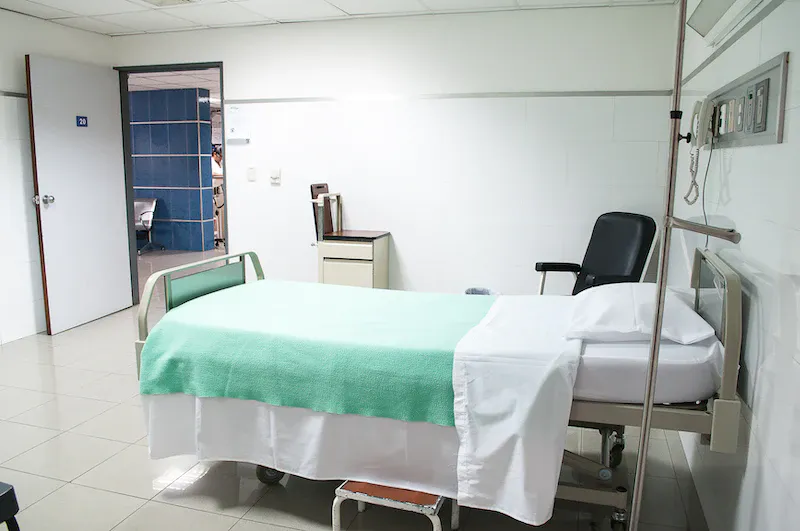The Power of Healing: Insights on Trauma and Toughness

Escaping from Trauma: My Journey of Healing
Growing up, I had a psychopathic mother who never gave me the love and care I deserved. As a result, I missed out on experiencing the innocence and joy that comes with being a child. Thankfully, there was someone who showed me kindness and gave me a sense of who I was in those early years. But when I was six years old, my mother sold me to a group of well-organized psychopaths who performed the darkest things imaginable. I witnessed and experienced unimaginable violence and trauma from the age of six to eleven.
However, I didn’t let those experiences define me. I escaped and went on a journey outward, but soon realized that I had to face myself. The inward journey that followed lasted for 30 years and was incredibly challenging. I faced death, confronted crevices, and at times felt the pain of the world. Despite all of this, I emerged victorious and was able to be just me.
Today, I work in jails and prisons in New York and have an organization called Liberation Prison Yoga. Through my work, I have come to understand that incarcerated people tend to be traumatized and often have a lot of trauma in their past, just like I did. But many of them do not have the privilege of focusing solely on healing, like I did.
I have also come to understand that the world we live in is ruled by psychopaths. These people are difficult to recognize because they often appear too good to be true. They play at being human and make it seem simple, but they are sick and behave like monsters.
The journey inward is not easy, but it is necessary for healing. It requires us to confront the reality of darkness, face our feelings, and balance rational thinking with feeling. We must also acknowledge that our traumas and experiences shape our behaviors, and we must recognize the behaviors of those who have suffered trauma.
In conclusion, my journey of healing has taught me that we all have the power to overcome trauma and darkness. It requires us to go on an inward journey, but it is a journey that is accessible to all of us. We just have to be willing to confront our feelings and face the reality of the world we live in.
From Belgium to the United States: A 30-Year Journey of Self-Discovery
Growing up, I wasn’t receiving the reflection of myself as a cute, innocent, and sweet little human being that we all need to live. My psychopathic mother didn’t provide that reflection, but a caretaker did, and I hold onto that memory strongly. However, my mother sold me to a group of psychopaths when I was six years old, and I experienced and witnessed the darkest things imaginable from the age of six to eleven.
These psychopaths weren’t just in Belgium; they were from all over the world, including world leaders, politicians, and country leaders. Some of them controlled the world leaders, and they performed unspeakable acts. I was rescued from them at the age of eleven.
In my late teens, I escaped from Belgium and ran to France. From there, I went to England and then to New York. After a few years in Los Angeles, I wanted to escape again, but I realized that if I went any farther west, I would end up in the Far East. I needed to face myself and began a journey of self-discovery that lasted 30 years.
It was an absolutely epic journey, facing dark death around every corner and confronting large crevices that I had to jump into. But I knew that something greater than my little ego was there to catch me. At times, I felt the pain of all the world, but after 30 years, I came out victorious.
I was lucky to have a sense of who I was, and that helped me navigate through the toughest times. However, the journey inward is where I discovered my true self. I had to confront my traumas and face the pain head-on. It wasn’t easy, but it was necessary.
Today, I work in jails and prisons in New York and have an organization called Liberation Prison Yoga. I can relate to everyone because incarcerated people tend to be traumatized just where they are, often with a lot of trauma in their past. The best way to find the monster is to go within and confront it. The journey inward isn’t always easy, but it’s worth it.
Insights on Healing Trauma: Lessons Learned from Working with Incarcerated People
Trauma can have devastating effects on an individual’s mental and emotional well-being. The impact of trauma can be compounded by experiences such as incarceration, which can further exacerbate feelings of hopelessness and despair. However, as someone who has worked with incarcerated individuals, I have seen firsthand how trauma can be healed through the power of human connection and toughness.
One of the most important lessons I have learned from working with incarcerated people is the importance of building trust. Trust is not easily earned, particularly in a system that is designed to strip individuals of their autonomy and agency. However, by showing empathy and a genuine desire to help, it is possible to build a relationship of trust with someone who has experienced trauma.
Another crucial insight I gained from working with incarcerated individuals is the need for a safe and supportive environment. For many people who have experienced trauma, the world can be a dangerous and unpredictable place. Creating a safe and caring environment can be a first step towards healing.
Finally, it is important to recognize that healing is a process, not an event. Trauma can leave deep scars, and it may take time to work through the pain and emotions associated with it. However, with patience, empathy, and a supportive community, it is possible to heal from even the most profound trauma.
Working with incarcerated people has taught me the importance of empathy, trust, and a supportive environment when it comes to healing from trauma. By recognizing the humanity in others and building relationships based on trust and respect, we can create a better future for ourselves and our communities.
Facing Darkness and Finding Victory: A Story of Courage and Toughness
Life can be unpredictable, and sometimes it throws us into situations that challenge us to our core. I know this firsthand because I have faced darkness and adversity in my life. But through it all, I have learned that with courage and toughness, victory can be found.
It all started when I was a young girl. I experienced trauma that left me feeling scared and alone. As I grew older, I tried to push those memories aside and move on with my life. But the trauma had taken hold of me, and it was affecting every aspect of my life. I was struggling with anxiety and depression, and I didn’t know how to break free from the darkness that had consumed me.
It wasn’t until I hit rock bottom that I realized I needed help. I turned to therapy and began to face my past head-on. It was a difficult journey, but I was determined to find healing and overcome the trauma that had been holding me back for so long.
Through therapy, I learned how to cope with my anxiety and depression and how to reframe my negative thoughts. I also discovered the power of mindfulness and meditation, which helped me to stay grounded and present in the moment.
With time and hard work, I began to see the light at the end of the tunnel. I started to feel more like myself again, and I gained a newfound sense of hope and purpose. I also became passionate about helping others who were going through similar struggles. I wanted to use my own experiences to inspire and enable others to find their own path to healing and victory.
Today, I can proudly say that I have found victory over the darkness that once consumed me. It wasn’t an easy journey, but it was worth it. I am grateful for the courage and toughness that I found within myself and for the support of those around me. I hope that my story can inspire others to find their own strength and toughness in the face of adversity.
The Reality of Psychopaths and the Trauma-Based Model of Society
Psychopathy is a topic that has been the subject of much fascination and speculation over the years. However, it is important to note that psychopaths are not simply the product of their genes or a result of a personal choice, but a complex combination of nature and care.
Many experts agree that trauma plays a significant role in the development of psychopathy. Trauma can affect the developing brain and lead to changes in behavior and emotional regulation. This can result in a range of symptoms, including impulsivity, aggression, and a lack of empathy.
It is also important to consider the impact of trauma on society as a whole. The trauma-based model of society suggests that many of the problems we see in our communities are the result of unaddressed trauma. This includes issues such as addiction, violence, and mental illness.
By recognizing the role of trauma in the development of psychopathy and other societal problems, we can begin to take steps towards healing and creating a more compassionate and understanding society. This includes increasing access to mental health services, implementing trauma-informed approaches in our institutions, and promoting empathy and connection in our communities.
While the reality of psychopathy and the trauma-based model of society can be difficult to confront, it is essential that we do so in order to create a better future for ourselves and for future generations.
Exploring the Balance between Feeling and Rational Thinking
As humans, we are complex beings with a wide range of emotions and thought processes. Often, we find ourselves torn between our emotions and our logical reasoning. In this article, we will explore the importance of balancing these inner journeys and awareness.
At times, we may feel overwhelmed by our emotions and struggle to think logically. This can lead to impulsive decisions that may not be in our best interest. On the other hand, relying solely on rational thinking can make us disconnected from our emotions and can hinder our ability to connect with others.
Finding the balance between these two modes of thinking can be challenging but is necessary for personal growth and well-being. When we are able to acknowledge and honor our emotions while also using rational thinking to make decisions, we can navigate through life with greater clarity and purpose.
It’s important to note that everyone’s journey towards finding this balance will be unique, as we all have different life experiences and coping mechanisms. However, some helpful practices can include mindfulness meditation, therapy, and journaling.
In conclusion, we must strive to find the balance between feeling and rational thinking. By acknowledging our emotions and using rational thinking, we can navigate through life with greater ease and purpose.
The Journey Inward: A Story of Healing and Transformation
Trauma can leave us feeling lost, broken, and alone. But it is also an opportunity to embark on a journey of self-discovery and healing.
For years, I struggled with the aftermath of a traumatic experience. I felt disconnected from my own emotions, unable to form meaningful relationships, and trapped in a cycle of negative thoughts and behaviors. But through therapy, self-reflection, and the support of loved ones, I began to reveal the root causes of my pain and learn how to heal from within.
One of the most powerful lessons I learned was the importance of self-compassion. It can be easy to fall into the trap of self-blame and shame, but these feelings only serve to reinforce our sense of victimhood and keep us stuck in our trauma. By practicing self-compassion and treating myself with kindness and understanding, I was able to break free from this cycle and begin to make real progress toward healing.
Another important step was learning to balance my emotions with rational thinking. It can be tempting to get lost in our feelings and allow them to control us, but it is also important to take a step back and look at things objectively. By practicing mindfulness and developing a sense of inner awareness, I was able to find a balance between my emotions and my rational mind, allowing me to make more thoughtful and intentional choices in my life.
Ultimately, the journey inward is a lifelong process of growth and transformation. It can be challenging, but it is also incredibly rewarding. By facing our trauma head-on and committing to our own healing, we can emerge stronger, more resilient, and more connected to ourselves and the world around us.
Facing the Reality of Darkness: The Challenge of Acceptance and Healing
The journey of healing from trauma can be a difficult and challenging one. It requires facing the reality of the darkness that we have experienced and accepting it as part of our story. Only then can we begin to move forward and find healing.
Acceptance is a key component of healing. It allows us to acknowledge our experiences without judgment and to understand that they do not define us. When we resist accepting our past, we continue to carry the weight of our trauma with us, which can be debilitating and can prevent us from living a fulfilling life.
Healing also requires us to take responsibility for our own journey. We cannot wait for others to fix us or save us from our pain. It is up to us to do the work of healing, and that work can be difficult and painful at times. But the reward is worth it, as we begin to experience the freedom and peace that come with healing.
It is important to have support on our healing journey, whether it is from a therapist, a support group, or friends and family who are willing to listen and support us. We do not have to face our trauma alone.
In facing the reality of darkness, we also learn to appreciate the light. We begin to see the beauty in life and the potential for growth and transformation. Our trauma becomes a part of our story, but it does not have to define us. We can use our experiences to help others who are going through similar struggles, and in doing so, find meaning and purpose in our own lives.
The journey of healing from trauma is not easy, but it is possible. It requires acceptance, responsibility, and support, but the result is a life filled with freedom, peace, and purpose.
Conclusion
In conclusion, trauma is a complex and often difficult topic to address, but it is important to understand its effects and how to heal from it. From the stories of individuals who have shared their experiences, we can see the power of toughness, courage, and inner strength.
Whether it is escaping from trauma, discovering oneself through a journey, or facing the reality of darkness, each story highlights the importance of healing and the various paths one can take to achieve it. It is clear that a trauma-based model of society must be recognized and addressed, and that healing can come through a combination of self-exploration, professional help, and supportive communities.
It is our responsibility to acknowledge the reality of trauma and to provide resources and support for those who are struggling. We must also work to create a society that prioritizes mental health and well-being, and recognizes the impact of trauma on individuals and communities.
Through education, advocacy, and support, we can help those who have experienced trauma to find their own path to healing and to create a brighter future for themselves and others.



